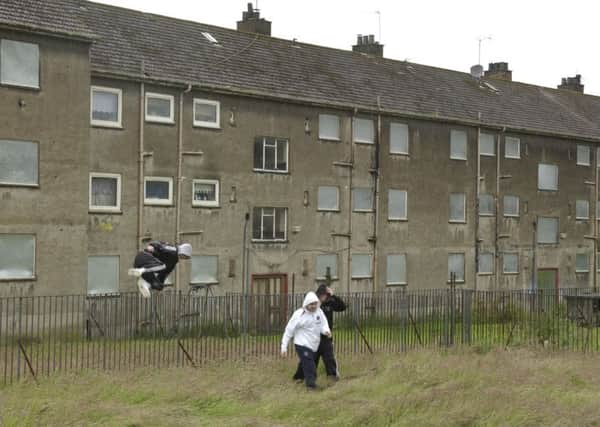Jamie Livingstone: Tipping point in inequality battle
This article contains affiliate links. We may earn a small commission on items purchased through this article, but that does not affect our editorial judgement.


In January, Oxfam issued a report which highlighted the scale of global economic inequality.
In it, we predicted the combined wealth of the richest 1% of people would overtake that of the other 99% by next year – 2016.
Advertisement
Hide AdAdvertisement
Hide AdWe were wrong. A recent report by Credit Suisse shows we have already passed this symbolic threshold.
“Trickle up” economics is clearly working for the super rich at the expense of the rest, although “trickle” understates the extent of the upwards flow.
In October, Oxfam Scotland launched a new paper outlining how we think the Scottish Parliament can support efforts to reduce inequality at home and abroad.
We estimated the 14 richest families in Scotland are wealthier than the poorest 30% put together.
At the same time, one in five people in Scotland live in poverty.
Oxfam won’t live with poverty here or anywhere else – and we know that we cannot end poverty unless we tackle extreme and rising inequality.
Many wealthy individuals made their fortune through talent and hard work. Many also support good causes.
But this cannot disguise that our economy provides excessive rewards to those who need them least.
Advertisement
Hide AdAdvertisement
Hide AdIn Scotland, research suggests the number of households below society’s minimum standard of living rose from 14% to 33% between 1982 and 2012. Yet, at the same time, the Scottish economy doubled in size.
In this context, the recent rejection of “trickle-down” by the World Bank President Jim Kim is welcome and it follows the International Monetary Fund’s acknowledgment that rising inequality is bad for growth.
It was also good to hear Prime Minister David Cameron’s commitment to challenging the fact that in the UK: “The salary you earn is more linked to what your father got paid than in any other major country”.
We have also been encouraged by a cross-party political focus on tackling economic inequality in Scotland.
This includes placing it at the heart of the Scottish Government’s revised Economic Strategy.
These initiatives are welcome: but it’s where they now lead that matters.
Our report for the Scottish Parliament outlines a number of policies to, for example, promote decent work based on minimum standards identified by low-paid workers.
Alongside this, all countries should transparently hold themselves to account on reducing inequality.
Advertisement
Hide AdAdvertisement
Hide AdHowever, poverty and inequality aren’t just about money – they are about power, too.
Therefore the post of Poverty and Inequality Adviser must be retained and bolstered with the powers and resources to systematically amplify the voices of people in poverty.
Clearly, not all political power rests in Scotland, but where the Scottish Parliament has power it should act boldly and where it does not it should be a strong and progressive advocate for change.
In doing so, we must also fully fulfil our obligation to people in poverty globally – an area that has attracted welcome and long-standing cross-party support in Scotland.
Kofi Annan, the former Secretary General of the United Nations, has said we are at a tipping point: the widening global gap between rich and poor can either take deeper root or it can be reversed if we act now. This warning is timely given the new Sustainable Development Goals, which include commitments to end extreme poverty by 2030 and to reduce inequality.
As the Nobel prize-winning Economist Joseph Stiglitz says: “Inequality is not inevitable”.
We hope our paper will help push the Scottish Parliament to do more to tackle it.
• Jamie Livingstone, Head of Oxfam Scotland
• Read “Even It Up: Oxfam’s policy priorities for the Scottish Parliament” at www.oxfam.org.uk/Scotland
Advertisement
Hide AdAdvertisement
Hide Ad• Oxfam is co-hosting the conference “Closing the Inequality Gap: in Scotland and around the globe” in Glasgow on November 9. Find out more at http://www.nidos.org.uk/events-and-training/nidos-networking-events/closing-inequality-gap-scotland-and-around-globe